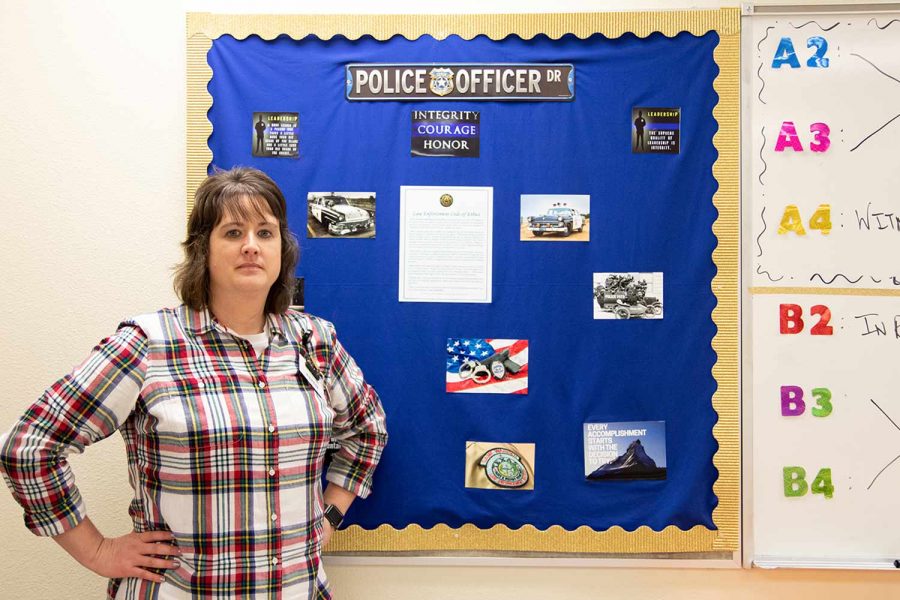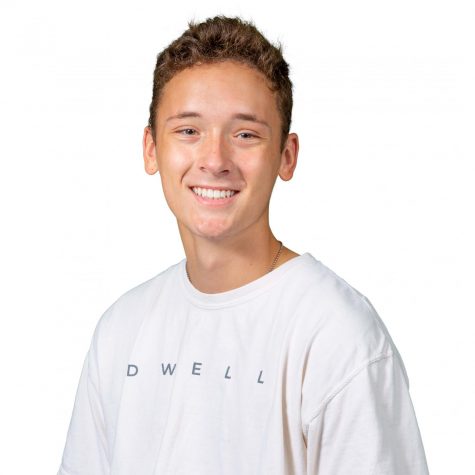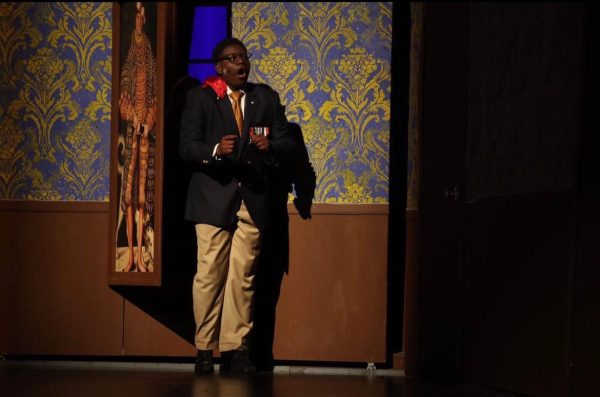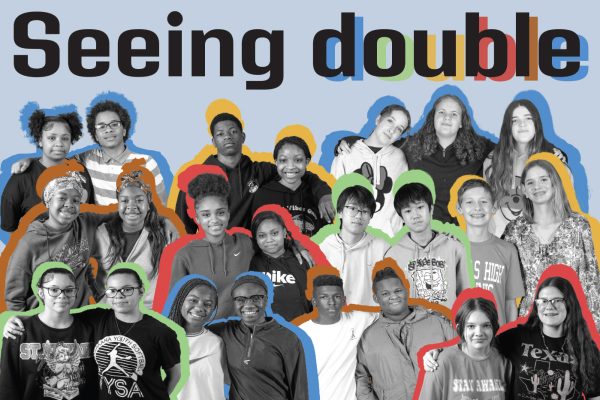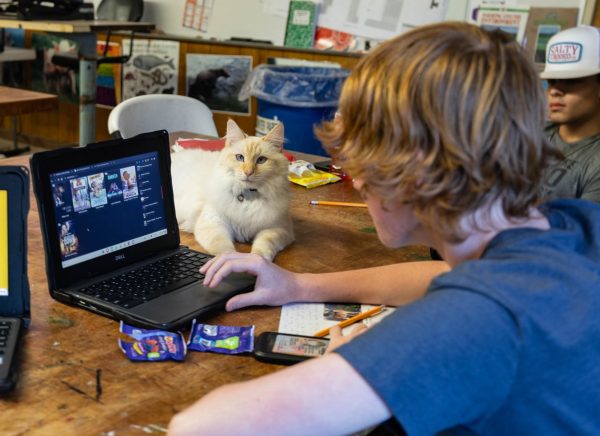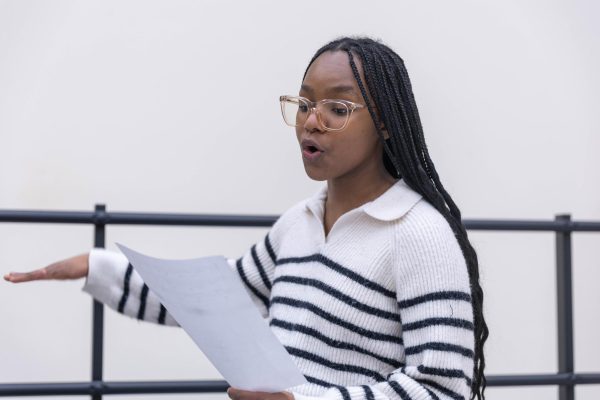From enforcing to educating
Teacher reflects on past career in law enforcement
Law enforcement teacher Michelle Shannon stands against a bulletin board in her classroom. Shannon served as a law enforcement officer before becoming a teacher.
January 17, 2020
Upon first glance into criminal justice teacher Michelle Shannon’s classroom, a theme in decoration is remarkably apparent. Her room is covered in blue paper and workplace pride. Patrol cars and policemen line her otherwise plain white walls. Following a closer inspection of room 97’s decor, it becomes obvious these hallmarks of criminal justice mean more to her than just the subject she teaches.
Near her desk is a picture, more personal than the others. They show her donning a uniform she now has no purpose of wearing. They show a version of Shannon before Texas High, when ethics and enforcement fueled her work day.
“Before I worked here, I was a Colorado State Trooper,” Shannon said. “Then, I went to work for the Norton Police Department in Norton, KS as an assistant chief of police. Then, I went to work for the US Marshals as a court security officer. That’s how I got down here. [It] was through that job.”
Although she did not begin teaching until after the police force, her adulthood began with education in mind.
“I was always going to be a teacher,” Shannon said. “And once I got through my second year of school, I decided that I needed to get out of school as soon as possible and get a job. So I decided the fastest way for me to get out of school was going to be getting a degree in psychology.”
This sudden switch in potential occupations, which was later worth the risk, presented unanswered questions after abandoning her dream of educating.
“So I did that [for] three and a half years, [and] got a bachelor’s degree in psychology,” Shannon said. “Then, my mom asked me what on Earth I was possibly going to do with that degree. I had no idea.”
Thankfully, this career crisis did not last for long. A family connection yielded opportunities in Shannon’s future.
“[My mother] knew somebody that was a probation officer that had a bachelor’s degree in psychology. [She thought] maybe I’d be interested in something like that,” Shannon said. “So I did a very short internship with her.”Her first venture into the world of criminal justice was brief, but it was enough time for her to narrow down career choices. Probation seemed monotonous. However, Shannon found a fast-paced alternative to her internship.
“It only took a couple of weeks for me to figure out that law was okay but [being a] probation officer was not my thing,” Shannon said. “I needed a little bit more action. So I said, ‘I think what I’m gonna do is be a police officer.’”
Her venture into law enforcement began unsteadily. Such a sudden jolt into the free for all nature of adulthood put a strain on a young, fresh out of college Shannon.
“You learn to grow a lot when you’re 22 years old and you are now responsible for people and their lives,” Shannon said. “You’ve hardly experienced life yourself, but you’re being thrown into that. You learn to mature, develop and grow mentally and emotionally really fast.”
These hardships proved worthwhile in 2008 when she was invited to oversee the Democratic National Convention in Denver. In this event, delegates voted on possible Democratic candidates for the 2008 presidential election. Since the conference’s attendees included esteemed politicians, they required high security protection. Shannon ensured their safety, walking alongside some of the U.S.’ most influential figures.
“I got to be on the ground floor as Barack Obama accepted the nomination. I was standing between Stevie Wonder and Muhammad Ali,” Shannon said. “I thought ‘[Of] all the places I could be right now, I am here.’”
Despite the glitz and glamor of safeguarding celebrities, nights like those were only temporary. What leaves a permanent mark on the psyche of a patrolman is interacting with others in their most inhumane states. However, Shannon refuses to let her previous profession define her view of humanity.
Whether she is sporting a star shaped badge or a teacher name tag, she continues turning her attention towards positivity. Her collage of cop symbols serve as mementos to the profession that shaped her worldview even after she departed from her position.
“You see the good and the bad of people every day,” Shannon said. “If you focus on the bad all the time, I think life could get depressing, but you have to remember the good that’s out there too.”


